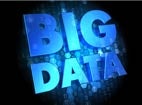Big data frightens me sometimes. Seeing this headline from Information Week, “IBM: We’ll Stand Up To NSA,” gave me heart palpitations.
It sounds noble and all, but really, when a large corporation is willing to stand up to the NSA over data about you or your company … is there any chance you’re winning? It reminds me of Tolkien’s “The Hobbit,” when the trolls are arguing over how to cook the dwarves. Roasting, boiling or jelly — it’s all the same to the dwarves in the end, right?
David J. Walton, a litigator who specializes in technology issues, took a look at how companies are really using Big Data. He’s an attorney, so this isn’t about business cases, ROI or any of that stuff — it’s about law, and when viewed through that lens, this is Brave New World stuff.
For instance, we’ve long heard about how Target used Big Data to target baby ads to women whose recent sales indicated they might be pregnant and inadvertently revealed a teenager’s pregnancy before the family knew.
I’d heard about it but I guess I never read the details on what specifically they saw as an indicator of pregnancy. I assumed it was a pregnancy test or something overtly baby-related.
But that’s wishful thinking. The teenage girl’s purchases: scent-free soap, an extra-large bag of cotton balls, hand sanitizer and washcloths.
I’ve had three pregnancies and two children, and I still don’t know what cotton balls or hand sanitizer or, now that I think about it, washcloths, have to do with pregnancy, either separately or together.
But the data doesn’t care what I think or what my personal experience is. We’re all just data points on a bell curve somewhere for Big Data analytics.
Maybe I was naive about that one, but Walton has found a few more rather frightening use cases that leave you wondering how something totally irrelevant to you could be used against you.
For instance, the European company Kreditech is using more than 8,000 sources, including social media, to assign a “unique” credit score to consumers. It then sells that information to banks and lenders. What’s “unique” here isn’t the concept of a credit score, but the type of data that’s factored into that score:
…they have discovered some surprising correlations between social media behaviors and financial stability. For example, if your Facebook friends use all capital letters, your score is docked. Title insurance underwriters are using the same tools to evaluate specific risks.
So, basically, I should only friend well educated, articulate people who never break writing conventions or become too excited. But wait, I have Spanish-speaking friends. What does that say about my credit? I have friends from high school who didn’t go to college. Should I worry?
Heck, maybe that’s my new business model: selling English majors as Facebook contacts as a way to boost your credit rating. (I would use an exclamation point, but it’s nearly tax time and I don’t want to raise any red flags.)
Walton includes other rather alarming uses of Big Data, including the infamous case where incumbent President Obama used Big Data to target swing voters in cheap time slots.
As he points out, Big Data has positives, too. Still, it’s a somber read in these bold new times. If, by chance, you’re so jaded that none of those give you pause, then consider his closing statement:
“These new uses will raises a host of legal issues that will impact the way that lawyers litigate and advise clients — and how lawyers run their own law firms.”
Let’s just pause here for dramatic, but unpunctuated, effect: Big Data will change how lawyers advise clients, litigate and even run their own law firms.
Now if that doesn’t make you think long and hard about the social, political and human ramifications of Big Data, nothing will.



